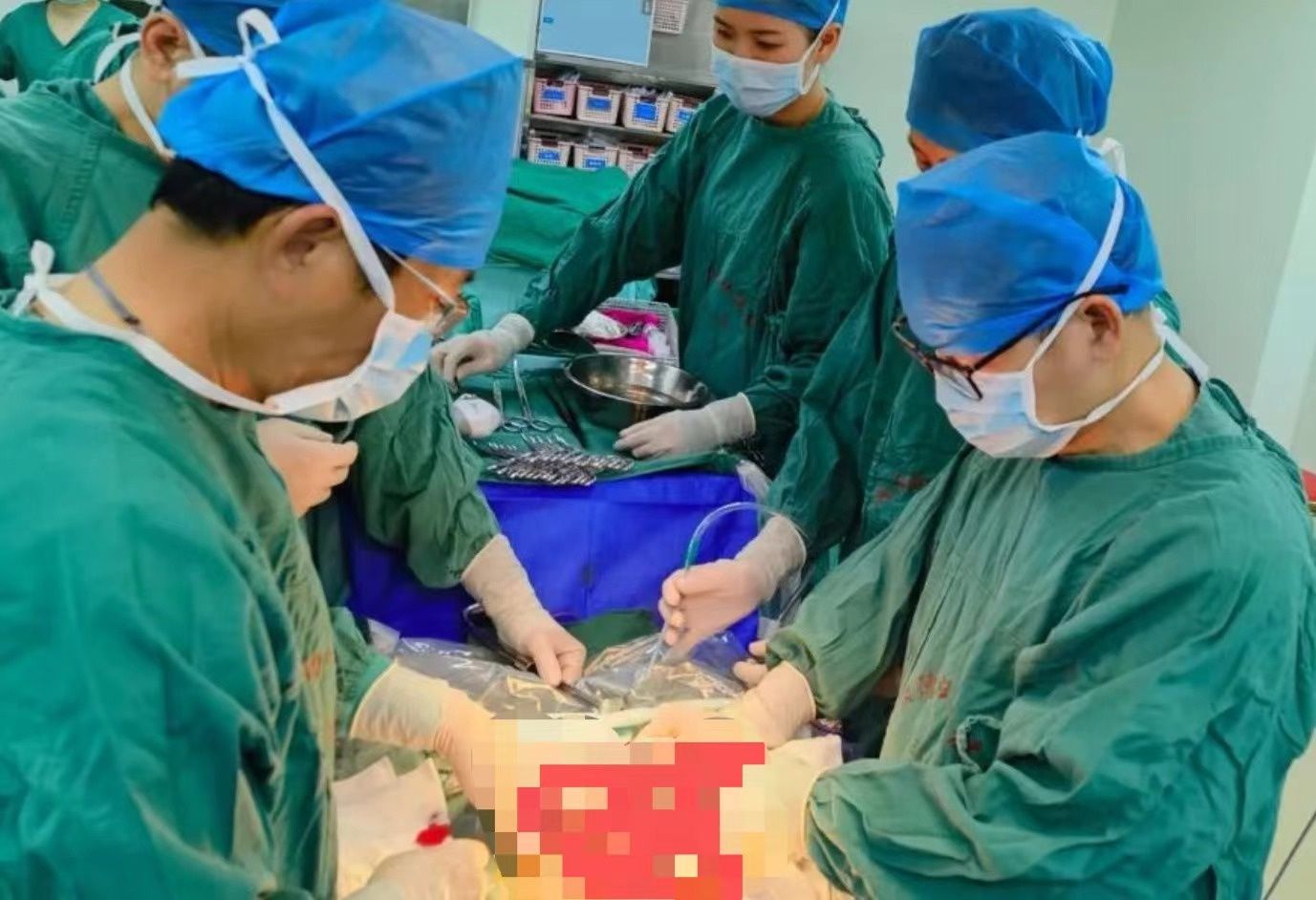The reporter learned today (19th) from Shunde Women and Children’s Hospital of Guangdong Medical University (Shunde District Maternal and Child Health Hospital) that recently, 67-year-old Mr. Wu lost his bladder due to malignant tumor. The urology team of the hospital used Mr. Wu’s ileum. A new bladder was rebuilt for him, allowing him to avoid a lifetime of urine bags.
According to reports, six months ago, Mr. Wu developed frequent urination and urgency for no obvious reason. The urine volume was about 50ml each time. There was no difficulty in urination. 4 to 6 times a night, but Mr. Wu paid no attention to it.
Due to the weight loss of 15 jins in the last six months, Mr. Wu came to the Department of Urology of Shunde Women and Children’s Hospital of Guangdong Medical University for treatment, and he was found to be bladder cancer. According to the doctor’s diagnosis at that time, because the bladder cancer invaded the muscle layer, Mr. Wu needed a total cystectomy to have hope of cure. However, using traditional surgical methods, Mr. Wu has to carry a urine bag for life after surgery, and he will also face embarrassing situations such as sexual dysfunction, so Mr. Wu fell into despair.
“Your physical condition is good. We can use your own intestines to make a ‘new bladder’. After the operation, after urination exercise, you can live a normal life as before.” After careful inspection and evaluation, the The hospital urologist gave a new plan.
According to reports, in situ ileal bladder replacement is to use the intestines to make a “M-shaped new bladder” and place it in the original position. It is the most complicated and difficult operation in urology recognized at home and abroad.

The doctor is performing the operation
It is reported that in order to better complete the operation, the urology team A thorough treatment and nursing plan is established, MDT consultation is organized by the medical department, and the directors of the radiology department, pathology department, surgical anesthesia department, imaging department, internal medicine ICU and other departments are invited to discuss the surgical plan and perioperative preparation. After the bladder was removed during the operation, a segment of the ileum was divided, M-shaped suture was performed, and then anastomosed with the bilateral ureters and urethra to reconstruct the functions of urine storage and urination. The operation took 5 hours and 10 minutes and was successfully completed with the cooperation of various departments. “This is the first case of the hospital using the ileum to replace the bladder.” The person in charge of the hospital said.
“Early bladder cancer can be cured through surgery. Early detection and early treatment are very important.” The hospital reminded that hematuria is the most common symptom of bladder cancer, especially intermittent painless hematuria throughout the whole process. Manifested as gross hematuria or microscopic hematuria. In addition, bladder cancer patients also have frequent urination, urgency, dysuria and pelvic pain as the first manifestations. “Citizens can perform 1 or 2 urine exfoliated cell examinations and bladder color ultrasound examinations every year. Once hematuria occurs, they should go to regular hospitals in time for early detection of bladder cancer.” The person in charge reminded.
Text/Guangzhou Daily Xinhuacheng reporter: Huang Zining Correspondent: Huang Xinying
Photo/provided by the hospital
Guangzhou Daily Xinhuacheng editor: Huo Zekai